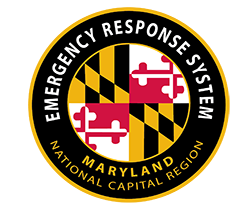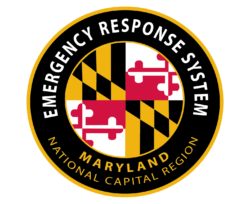
Meta-Leadership
The seminars cover essential tools and techniques of Meta-Leadership. Meta-
The series focuses on three dimensions of Meta-Leadership—the Person, the Situation, and Connectivity—to help one better understand themselves as a leader, the challenges one faces, and how to bring stakeholders together to achieve cohesive action. The program is tailored to the emergency response realm, specifically the unique characteristics and nuances of the Maryland-National Capital Region.
Please note in-person synchronous attendance is required to receive credit for this MDERS sponsored training event.
COVID-19 is an example of a complex problem. Complexity requires leaders to view problems expansively. By doing so, they grasp the full scope and scale of what face and they develop solutions that fit the enormity of the situations. The Meta-Leadership model builds from complex problem solving, challenging the leader to think and practice broadly. The Arcs of Time guides leaders through the phases of the COVID-19 event so they can anticipate what is likely to come next and strategically prepare themselves and their systems to meet the demands.
Learning Objectives
- Gain an appreciation for the dynamics of complex, adaptive systems as they relate to leadership challenges.
- Understand the three dimensions of meta-leadership as frames for understanding and dealing with complexity.
- Identify the characteristics of an Arc of Time: the COVID-19 event will traverse multiple Arcs until India achieves a “Next Normal.”
Unlike other leadership frameworks, Meta-Leadership starts with YOU, the Person of the Leader: You’re It! This speaks to your responsibility to know and understand yourself as well as to understand the emotions and behaviors of your followers. The definition of Meta-Leadership is “People Follow You.” Why will people follow you? The answer lies in your character, and what you intend to accomplish in your leadership. “You” is both a singular word, describing the individual leader as well as a plural word, describing your followers, “You” the people who are the base of your support, trust, and confidence.
Learning Objectives
- Learn to get “smarter than your brain” by understanding the “emotional basement,” the “freeze, flight, and fight” responses that occur when you face a crisis and panic, and how to pivot your brain and that of others, to “get out of the basement.”
- Understand the cognitive biases that affect your understanding of situations and how they can assist and hinder your understanding of the situations that face you.
- Identify your risk and reward ratio, and how that hard wiring in your brain will affect how you and others assess risk and what to do about it.
When leading a crisis response, some of what is important is known to you. However, many factors that affect your decisions and actions are unknown. Your responsibility is to “drive to the knowns.” Some of that information is readily accessible, and it is your job to incorporate that information into your decision-making. Other information is more elusive. Your responsibility is to build your knowledge base in order to achieve the best possible outcome in your leadership.
Learning Objectives
-
- Distinguish between the knowns; the known-unknowns; the unknown-knowns; and the unknown-unknowns; and then how to build a strategy that will best inform your decisions and operations.
- Become adept at integrating different perspectives into your leadership situational awareness, using the “cone in the cube” to discern what is happening and what needs to be done about it.
- Recognize the challenges of knowledge acquisition in a complex event and develop proficiency in systematically building situational awareness as you employ the POP-DOC Loop.
Your task as a Meta-Leaders is to bring a wide scope of people together in order to overcome the threat. Building the coalition of the willing requires you to lead in multiple directions: down to your subordinates; up to your bosses; across to other people who are part of your system; and beyond to other organizations and to the public at large. The stronger the unity of purpose, the more likely you are to achieve your Meta-Leadership objectives.
Learning Objectives:
- Understand how to lead “up, down, across, and beyond” to build unity of purpose and effort. Grasp the power-influence dynamics of each direction and how to link and leverage across organizational boundaries.
- Identify the many mission critical stakeholders – the people follow you – and what motivates their support and involvement in the efforts you are leading.
- Learn the principles of Swarm Leadership and how to establish: unity of mission; a spirit of generosity and action; everyone staying in their own lanes and helping others to succeed in theirs; no ego-no blame; and a foundation of trusting relations.

